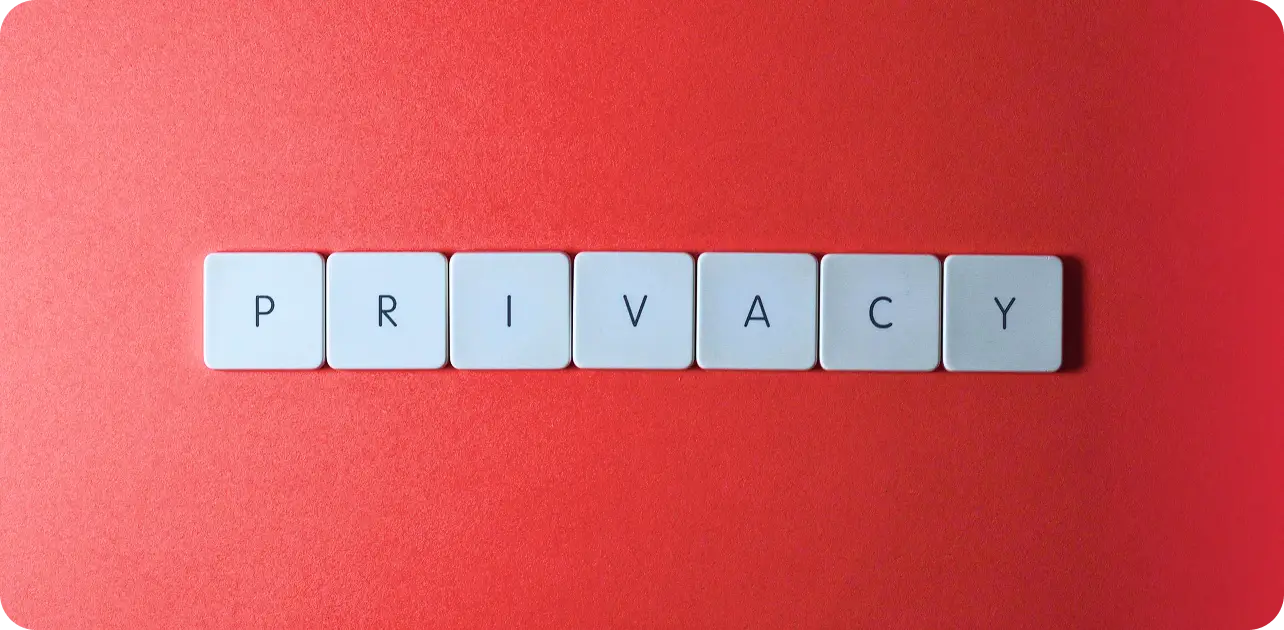
How to Deal with Online Blackmail
Online blackmail scares people into doing things they don't want to do. Being in a helpless situation where you have to do something against your will can be pathetic. Victims must understand that blackmail scams and threats can be nullified by documenting every threat, securing their digital footprint, and promptly reporting blackmail crime incidents to law enforcement.

What is Online Blackmail?
Online blackmail is a form of extortion where someone threatens to share harmful or embarrassing information about you online unless you give them something to conceal such information. It could be money, sexual favors, or anything else the blackmailer demands. Online blackmail on social media increased by nearly 50% over the past 3 years, affecting thousands globally. Here are a few characteristics of digital blackmail:
-
It relies on the victim’s fear and vulnerability. This means that a blackmail scam is only as dangerous as the victim’s fear and futile when he stands his ground.
-
It involves social media, email, or other digital platforms to deliver threats and demands.
-
The objective of cyber blackmail is to control your will by threatening to ruin your reputation, send explicit material to your contacts, or even post the information publicly.

Types of Online Blackmail
The definition of blackmail covers various tactics used to manipulate victims. Below are some of the most common types of online blackmail.
Sextortion
Sextortion involves threats to expose intimate images or videos unless the victim complies with demands, usually for money or more explicit content. This cyber blackmail tactic targets individuals who may have shared personal material online, often making them feel trapped and powerless.
Revenge Porn
A form of digital blackmail, revenge porn occurs when someone shares or threatens to share intimate images without consent, often to humiliate or control the victim. This crime is frequently linked to personal vendettas or failed relationships and can lead to serious reputation damage.
Catfishing
Catfishing is a deception tactic where someone creates a fake identity to manipulate or exploit others. Victims of this blackmail scam may share personal information, which is later used against them for financial gain, emotional control, or public humiliation.
Account Takeover
In an account takeover, hackers gain access to a person’s online accounts—email, social media, or banking—using stolen credentials. The blackmailer may threaten to leak sensitive data or demand ransom to restore access, turning the victim into a pawn in a larger internet blackmail scheme.
Reputation Damage
Blackmailers often threaten to ruin someone's reputation by exposing real or fabricated information. This tactic is common among online blackmail scams, where victims are coerced into making payments or performing unwanted actions to prevent false accusations from spreading.
Social Media Exploitation
Social media is a prime target for blackmailing online, as scammers manipulate victims through hacked accounts, impersonation, or coerced confessions. This form of online blackmail on social media preys on personal connections and digital footprints to extract money or compliance.
Threats of Defamation
Defamation-based blackmail crimes involve threats to spread false or damaging claims unless demands are met. These threats often target professionals, public figures, or businesses, leveraging the fear of tarnished reputations to pressure victims into submission.
Social Media Blackmail
Blackmail vs Extortion
Blackmail is threatening someone to disclose their private information unless scammers are satisfied with money, services, or other advantages. Online blackmail frequently uses made-up stories, compromised photos and videos, or stolen data.
Blackmail |
Extortion |
|---|---|
|
Threatens to expose one’s secrets |
Threatens harm to force the victim to comply |
|
Uses personal, harmful information |
Uses intimidation, sometimes violence |
|
Tries to control you or get favors that don’t involve money |
Mainly trying to get cash or valuable items |
|
Hurts the victim's feelings and makes people think badly of you |
Often results in physical and financial harm |
|
It is a serious offense that leads to punishments |
It is a felony with harsher punishments |
Signs of Blackmail
Recognizing the signs of blackmail can help prevent falling victim to online extortion. Blackmailers use coercion, threats, and manipulation to instill fear and force compliance. Below are key warning signs of online blackmail scams.
Threats of Exposure
Blackmailers often threaten to release sensitive information, such as private photos, financial records, or personal conversations, unless demands are met. This type of blackmail crime preys on the victim’s fear of humiliation, loss of reputation, or legal consequences.
Persistent and Repeated Contact
A common blackmail step involves relentless messages, emails, or calls. Online blackmailers frequently increase pressure by sending repeated threats or warnings, attempting to create a sense of urgency and forcing victims into compliance.
Exploiting Personal Vulnerabilities
Blackmailers target weaknesses, such as past mistakes, financial struggles, or personal secrets. They use these vulnerabilities to exert control, making the victim of blackmail feel trapped, ashamed, and more likely to give in to the demands.
Psychological Manipulation
Cyber blackmail often involves emotional tactics, such as guilt-tripping, gaslighting, or false claims of sympathy. Blackmailers manipulate victims into believing they have no other choice but to comply, creating a cycle of fear and submission.
Is Blackmail Illegal?
All types of blackmail are illegal and against the law in most jurisdictions. Blackmailing online has been the source of jeopardy and collapse of social order, institutions, and community norms, resulting in widespread chaos and loss of stability in everyday life. The sudden increase in the rate of online extortion has made the government come up with new ideas on how to deal with online blackmail. Threatening to reveal embarrassing information or cause physical harm through any form of blackmail, including digital blackmail, cyber blackmail, and internet blackmail, is highly prohibited by the government and classified as either a felony or misdemeanor depending on how severe the blackmail scam is and the jurisdiction in which it was committed.

How to Protect Yourself from Blackmail
Blackmail, especially online extortion, can have serious consequences. Taking preventive steps can help reduce the risk of becoming a victim of blackmail. Here are key measures to stop blackmail before it starts:
Limit personal information online
Avoid sharing sensitive data, private images, or confidential details on social media or unsecured platforms.
Strengthen account security
Use strong, unique passwords and enable two-factor authentication to prevent internet blackmail through account hacking.
Be cautious with online interactions
Avoid sharing intimate content or personal details with strangers, as blackmailers often exploit these for digital blackmail.
Recognize warning signs
Be aware of blackmailing online tactics, such as threats, persistent messages, and psychological manipulation, to identify scams early.
Avoid engaging with blackmailers
If threatened, do not respond or comply with demands, as this can encourage further extortion.
Document all threats
Save messages, emails, and other evidence to strengthen your case if you need to report blackmail online.
Seek legal or professional help
If facing a blackmail crime, contact authorities or cybercrime units to stop online blackmail effectively.
How to Get out of Blackmail?
Blackmail scams are unforeseen, and victims of blackmail tend to lose their cool because they don’t know how to deal with online blackmail. These steps will help you stop online blackmail if you ever become a target.
Stay Calm
Avoid panicking to think clearly and make informed decisions.
Do Not Comply
Refrain from giving in to the blackmailer's demands.
Preserve Evidence
Keep all communications and relevant materials intact.
Seek Support
Confide in trusted friends, family, or professionals.
Report the Incident
Contact law enforcement or appropriate authorities promptly.
How We Can Help
Wondering how to get rid of blackmail? We can help you change the tides against blackmailers and ensure that justice is served accordingly! Our blackmail helpline is readily available for you to report blackmail online cases to guide you through blackmail scams with off-the-record assistance, expert advice, and immediate action plans. Report blackmail online threats immediately, so we can help you track the perpetrators.
Are you under attack? We can help.
Are you a victim of online blackmail, who seeks professional help?
Get HelpFAQ
How to deal with social media blackmail?
If someone is blackmailing you on social media, first, keep a record of everything. Save all the bad messages and take pictures of them. Don't talk to the person blackmailing you. Instead, tell the social media website's security team about it. Talk to a lawyer right away, and if you need to, call the police to keep your information and yourself safe.
How to avoid cyber blackmail?
To stay safe from online blackmail, use strong passwords that are entirely different for each account and turn on extra security like two-factor authentication. Keep your phones and computers updated. Be careful about what you share online. Change your privacy settings to be more private, and don't click on links or talk to people you don't know.
How to get blackmail help?
First, save all the messages and emails you have as proof of the blackmail. Then, find a blackmail helpline or a lawyer who can know about online blackmail. Explain the incident to the police so that they can start an investigation and help you.
What can the police do about blackmail?
The police can investigate blackmail cases by collecting evidence from computers and phones and working with experts who track online criminals. They use the law to catch and punish those who are blackmailing others. They also help the people being blackmailed stay safe and ensure justice is served.
How to stop blackmail?
To stop blackmail, don't do anything rash. Save all the proof you can provide before doing anything else. Tell the police right away and get help from an experienced lawyer and a computer security expert. Making your online accounts more secure can also help you avoid future problems.
Table of Contents
Get Help Now!
Blackmail is threatening someone to disclose their private
Get Help Call: (317) 643-6483